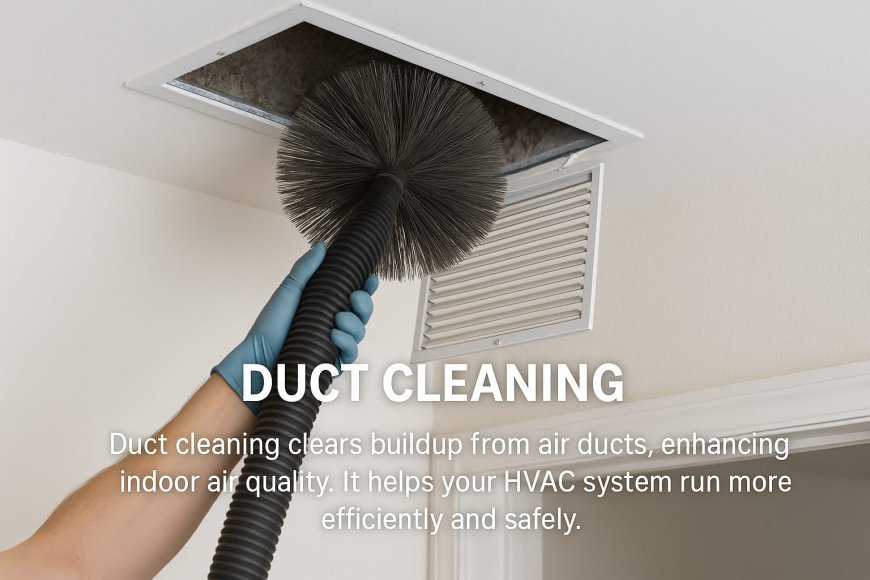How Does Dust Build-Up Affect Duct Cleaning in Jacksonville

What’s Hiding in Your Jacksonville Ducts?
In Jacksonville, we get a unique mix of weather—windy afternoons, sandy breezes from the coast, and plenty of moisture in the air. That combination means dust isn’t just made up of the usual suspects like dead skin cells or hair. Here, it’s a cocktail of pollen, mold spores, fine sand, and even the occasional insect debris. Once all of this settles into your air ducts, it starts to layer up, a lot like cake icing—only less tasty.
Over time, this mixture doesn’t just sit there harmlessly. As your air conditioning or heating system kicks on, the dust gets blown around, making its way right back into your living spaces. Those with allergies especially notice when the dust gets stirred up, and pets only add to the mix. This is why indoor air quality becomes a real topic of conversation in Jacksonville households.
| Source | Type of Dust | Potential Effects |
|---|---|---|
| Outdoor Air | Pollen, sand, spores | Allergies, asthma |
| Pets | Hair, dander | Respiratory irritation |
| Home Activities | Lint, fibers, skin cells | Musty odors, dust build-up |
| Humidity | Mold fragments | Moldy smells, health issues |
How Dust Build-Up Impacts Duct Cleaning
When your air ducts have only a thin layer of dust, cleaning is usually a straightforward process—a quick vacuum and a brush, and everything’s fresh again. But in Jacksonville, the humidity and frequent use of AC can create the perfect environment for the dust to cake and even form sticky clumps. This means that what could have been a simple job now requires much more effort. Sometimes, professional tools like rotary brushes or high-powered vacuums are needed just to break through the stubborn layers.
Another complication is the way dust interacts with moisture. The inside of your ductwork can become a breeding ground for mold if dust is allowed to accumulate. Once mold takes hold, air duct sanitizing becomes necessary, not just cleaning. Mold spores can be harmful, especially for kids, seniors, and anyone with respiratory issues. So, regular dust build-up doesn’t just make duct cleaning harder; it can mean the difference between a routine maintenance and a full-blown mold remediation project.
“When you ignore the dust in your ducts, you’re not just risking a dirty home—you’re inviting a range of problems that can affect how you breathe, how much you pay for energy, and even the lifespan of your HVAC system.”
Why Jacksonville Homes Need Regular Duct Cleaning
It’s easy to forget about the ductwork hidden behind your walls and ceilings. But in a city like Jacksonville, where the AC practically never gets a break, dust can pile up surprisingly fast. Every time your system cycles on, all that built-up debris gets a chance to drift out into your rooms. This is especially noticeable if you’ve recently renovated or had construction work done, as extra dust and debris can quickly clog up the system.
Regular maintenance isn’t just about keeping things tidy. Clean ducts mean your HVAC system doesn’t have to work as hard to push air through. That can translate to lower energy bills and less wear-and-tear on your expensive equipment. Plus, you’ll likely notice a drop in allergy symptoms, less dust settling on your furniture, and a general improvement in how your home smells and feels.
Best Practices for Duct Cleaning in Jacksonville
So, what can you actually do to keep that pesky dust from taking over your ductwork? First, consider scheduling professional duct cleaning at least every couple of years—more often if you have pets or live near the beach where sand can sneak in. Between cleanings, swapping out your air filters on schedule is key. A clogged filter lets more dust slip through and settle where you can’t see it.
Pay attention to signs like musty smells, unusual dust build-up on furniture, or increased allergy symptoms. These are your home’s way of letting you know it’s time for a little duct TLC. And if you’ve never had your ducts inspected, it might be worth booking a check-up—sometimes what’s lurking inside is more surprising than you’d expect.
What's Your Reaction?




























































